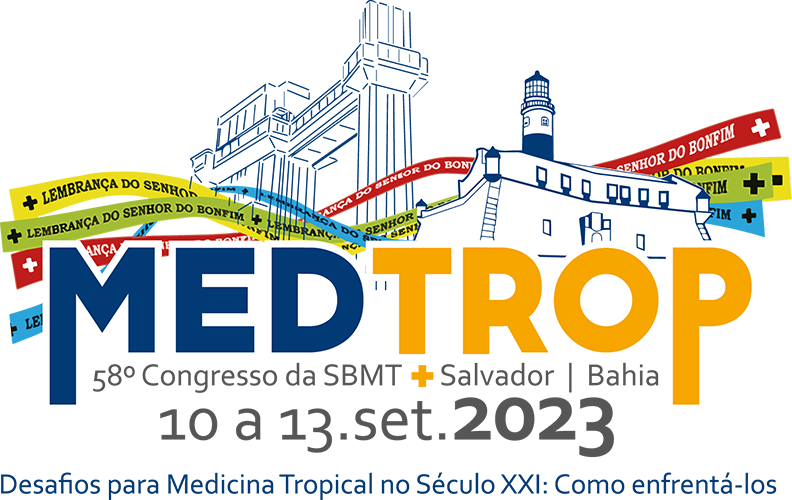Dados do Trabalho
Título
Genomic epidemiology of Dengue virus in Rio Grande do Sul reveals a mixed landscape of new introductions and long-term persistence of DENV-1 and DENV-2
Introdução
Dengue virus (DENV) infects millions of people worldwide annually. In Brazil, annual epidemics of Dengue fever (DF) have occurred since the 80’s; in 2022, approximately 1,000 people died of DF in the country. In Rio Grande do Sul (RS), the southernmost Brazilian state, the first autochthonous case occurred only in 2007; nevertheless, case numbers have been increasing significantly in the region.
Objetivo (s)
Characterize the prevailing DENV lineages and geographical spread in RS.
Material e Métodos
Using an amplicon-based approach on Illumina MiSeq platform we retrieved whole DENV genome sequences from samples from 668 individuals infected with DENV between 2015 and 2023 in RS, of which 629 were DENV-1, and 39 were DENV-2. Sequences were aligned with a global dataset and used to carry out phylogenetic and phylodynamic inferences.
Resultados e Conclusão
All 629 DENV-1 sequences were assigned to Genotype V. Most of the sequences from 2023 were grouped into 14 different clades that descend from clades with RS sequences from 2021 or 2022, suggesting that DENV-1 lineages are persisting in RS since 2021, after being introduced in the state from other regions of Brazil. Therefore, the occurrence of DENV-1 infections in RS in recent years has most probably occurred due to the continuous circulation of strains already present in the state, and this ongoing transmission has caused annual outbreaks. Regarding DENV-2, 18 sequences from 2023 samples were grouped into two clades containing sequences of Genotype II (Cosmopolitan), together with sequences of RS samples from 2022. Accordingly, the Cosmopolitan Genotype had its first identification in RS in 2022, possibly an introduction from the Midwest region of the country, and it spread in the Metropolitan region of Porto Alegre that year. The present analysis demonstrates that DENV transmission was sustained in 2023, but now occurring mainly in the Northwest region of RS. Interestingly, in 2022 the Northwest of RS had an important circulation of DENV-2 Genotype III, coming from an introduction from other Brazilian states, but in 2023, so far, no sequences belonging to this genotype have been identified in RS. Results stress the importance of arboviruses genomic surveillance as an important tool to track the dissemination and evolution of the viruses responsible for these diseases, helping to improve prevention and control strategies.
Palavras-chave
Arboviruses; Dengue; Genomics.
Agradecimentos
SES-RS, Ministério da Saúde, FAPERGS.
Área
Eixo 08 | Arboviroses
Categoria
Concorrer ao Prêmio Jovem Pesquisador - Graduado
Autores
Amanda Pellenz Ruivo, Fernanda Godinho, Franciellen Machado dos Santos, Júlio Augusto Schroder, Viviane Horn, Fernanda Leticia Martiny, Érica Bortoli Möllmann, Tatiana Schäffer Gregianini, Gabriel da Luz Wallau, Ana Beatriz Gorini da Veiga, Richard Steiner Salvato

 Português
Português English
English